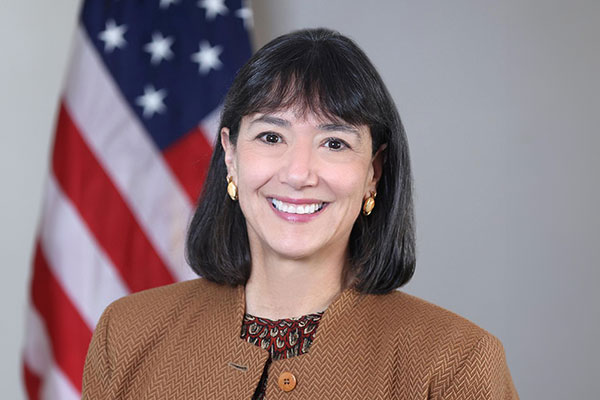|
Dear Colleagues,
I am pleased to include another issue of RFS Briefings with some timely and encouraging updates on women in science.
Our annual meeting is almost here!
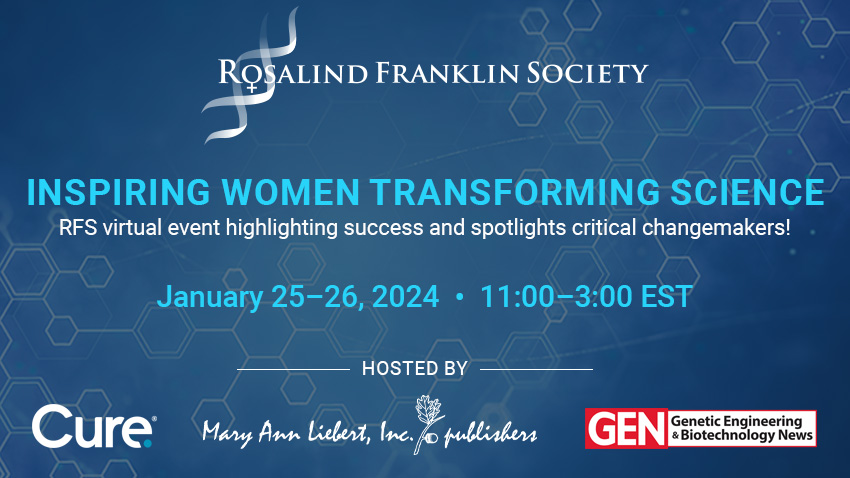
We are in the process of taping an impressive agenda that will showcase amazing leaders who you may not have heard from! We will again present an impressive panel of prestigious leaders in science, and a panel to highlight the unique path of scientists From PhD to CEO. As in the past, you will also want to hear first-hand from major new appointments in the Federal government and university leadership.
These productions will be shared through broadcast on January 25th & 26th, 11:00 a.m. - 3:00 p.m. (EST).
A link for registration will be posted soon. We know you will want to hear these presentations from prestigious scholars, industry, and government leaders, and a not-to-be-missed update on AI.
Please continue to share important news and opportunities with us so that we may share it with you, and others who are committed to supporting the careers of exceptional women in science.
Stay safe and sound,

Karla Shepard Rubinger
Monica Bertagnolli, M.D., takes the helm at NIH.
Monica M. Bertagnolli, M.D., started this week as the 17th director of the National Institutes of Health, the United States’ biomedical research agency and largest public funder of biomedical research in the world. She is the first surgeon and the second woman to hold the position. Read more. In case you missed it, here is her RFS presentation from last year! (Image: NIH Director Monica M. Bertagnolli, M.D. Credit: NIH)
“My path to heading a biotech company.”
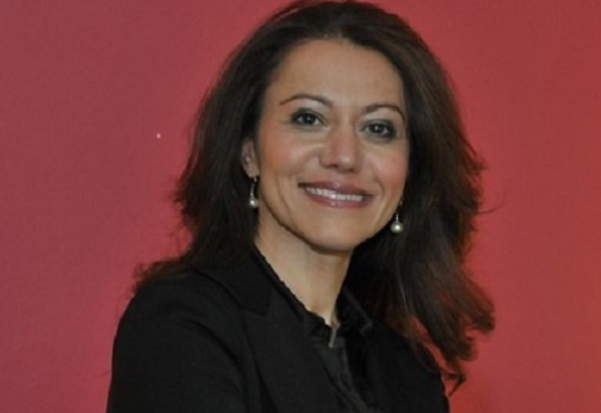
Neuroscientist and biochemist Shadi Farhangrazi is the chief executive of S. M. Discovery Group (SMDG), a biotechnology company based in Durham, UK. In this article for Nature, Farhangrazi describes her transition from academia, which included two postdocs after completing her PhD in protein-design biochemistry at Utah State University in Logan. Read more. Shadi Farhangrazi. Credit: Marianne Brickner/Nature.
‘We need more women,’ says only female winner of Millennium Technology prize.
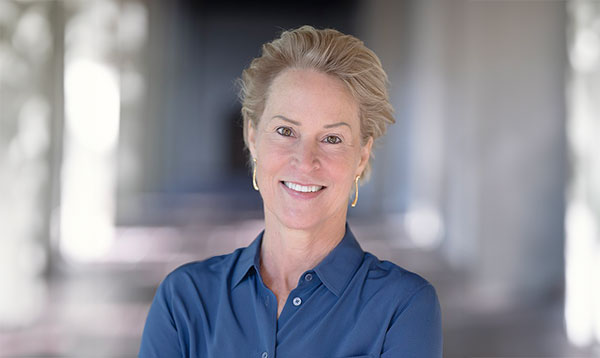
We’d love to see more diversity in the winners of these prizes because we know that diverse people contribute to technology,” Frances Arnold, an American chemical engineer, told the Observer. “It’s important to remember that these prizes are often recognising work that was started 20, maybe even 30 years ago, when women were not as numerous in the technology community as they are today,” she said. “So my prediction is that there will be more nominations for women because marvellous women are joining the technology community. Read more. (Image: Frances Arnold at Caltech in 2021 by Christopher Michel, Source: Wikipedia)
The U.S.’s First Black Female Physician Cared for Patients from Cradle to Grave.
In this episode of Lost Women of Science, hear the story of Rebecca Lee Crumpler, who became the first Black woman in the U.S. to receive an M.D., earned while the Civil War raged, and the first Black person in the country to write a medical book, a popular guide with a preventive approach. Read more.
How Oxygen-intolerant Microbes Navigate an Oxygen-filled World.
In this webinar on November 29, Lindsey Backman, Valhalla Fellow at Whitehead Institute, will discuss her lab’s mission to determine molecular tactics that enable bacteria to cope with varying levels of oxygen and oxidative stress. Read more.
How Susan La Flesche Picotte became the 1st Native American medical doctor.
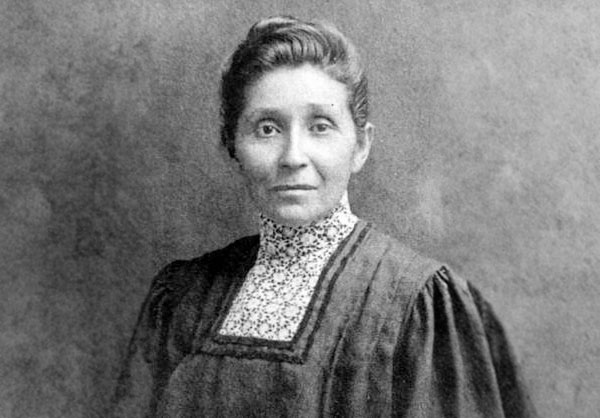
November is Native American Heritage Month, a celebration of the traditions and languages of Indigenous communities in the United States. For PBS’ “Hidden Histories” series, they look at the story of Dr. Susan La Flesche Picotte, the first Native American to earn a medical degree. At a time when women were considered ill-suited to be physicians, she enrolled at Woman's Medical College of Pennsylvania, the nation's first medical school for women.Read more. (Image: Dr. Susan La Flesche Picotte, The National Library of Medicine/Wikipedia.)
Clinical Microbiomics A/S and CosmosID Inc. have merged to create a formidable force in the field of microbiome science.
CosmosID was founded in 2008 by world-renowned microbiologist, Professor Dr. Rita Colwell, President of RFS. The purpose of the new company is to help scientists worldwide understand how the microbiome influences health and well-being– from humans and animals to plants and the environment. Read more.
Ellen MacArthur Foundation receives UN Champions of the Earth award.
“Momentum is building to tackle plastic waste and pollution. Over the past five years, leading businesses – through the Global Commitment – have shown it is possible to make progress, and more and more governments around the world are taking action. (...) My thanks to the United Nations Environment Programme for recognising the importance of the Foundation’s work in this global effort to stop the flow of plastic pollution,” said Dame Ellen MacArthur, Founder and Chair of Trustees, Ellen MacArthur Foundation. Read more.
CEO Deborah Bronk announces major expansion of BigelowLab in Boothbay, Maine, with support from two key women leaders in the state: Governor Janet Mills and Senator Susan Collins.
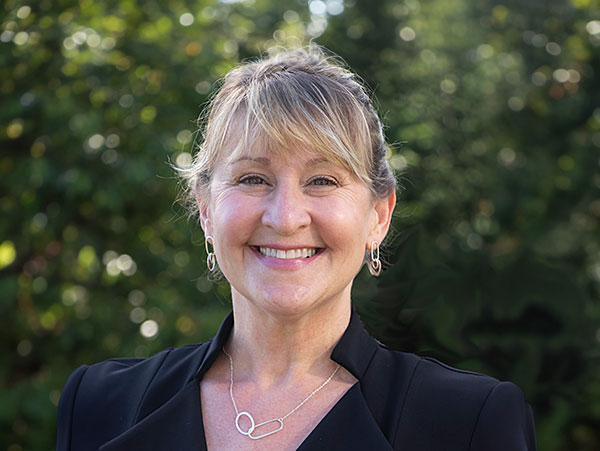
“When it comes to understanding the ocean and climate change, it’s all about the microbes,” said Bigelow Laboratory President and CEO Deborah Bronk. “They will determine how the ocean responds to a changing climate, and they are our greatest tool for trying to address the damage that’s been done to the ocean. That future is what this new center is all about.” Read more.(Image:Deborah Bronk, Bigelow Lab)
Congratulations to Ethiopian-born scientist Gebisa Ejeta on receiving the National Medal of Science, the highest recognition the United States awards to scientists.
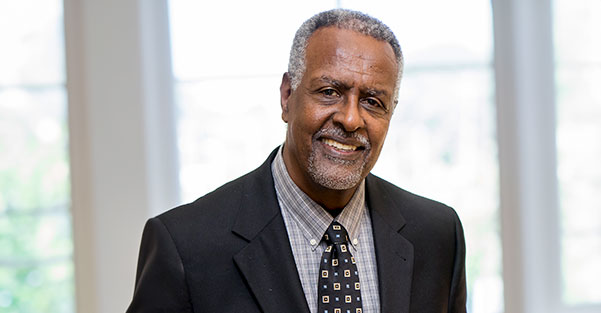
Dr. Ejeta is acclaimed as one of the world's leading plant geneticists. He specializes in the study of sorghum, a popular source of food in Africa. In 2009, Dr. Ejeta won the prestigious World Food Prize for developing a sorghum hybrid that is resistant to both drought and the parasitic weed Striga, which commonly invades farms in Africa. Read more.(Image: Dr. Gebisa Ejeta, Purdue University)
Gulf Research Program Awards $22 Million to Launch New ‘Mississippi River Delta Transition Initiative’ Consortium.
“Multiple natural and human-made factors are driving major changes to the Mississippi Delta, and how these play out will have profound implications for the Gulf and the nation,” said Lauren Alexander Augustine, executive director of the Gulf Research Program. “The MissDelta project takes advantage of the wealth of expertise in the region and mobilizes multiple institutions to provide the foundation for forward-looking, science-based management of this incredibly important natural resource for the benefit of Gulf residents.” Read more.
Subscribe to our newsletter (RFS Briefings) at Rosalind Franklin Society | Substack
Marianna Limas, Social Media Manager
Nilda Rivera, Partnership and Events Manager
|


